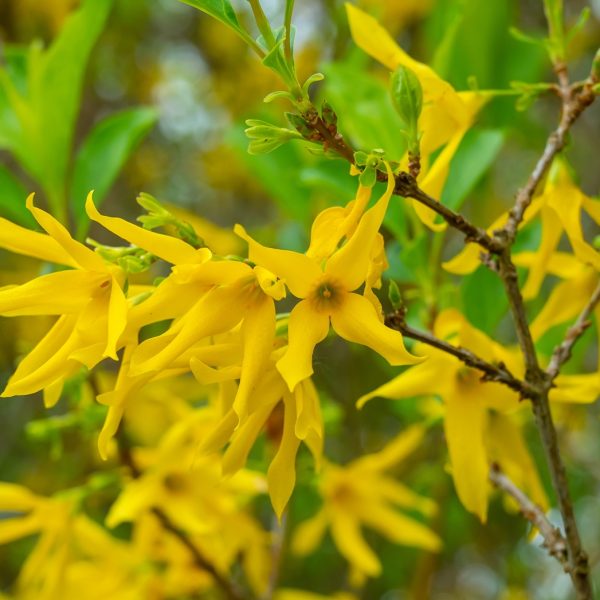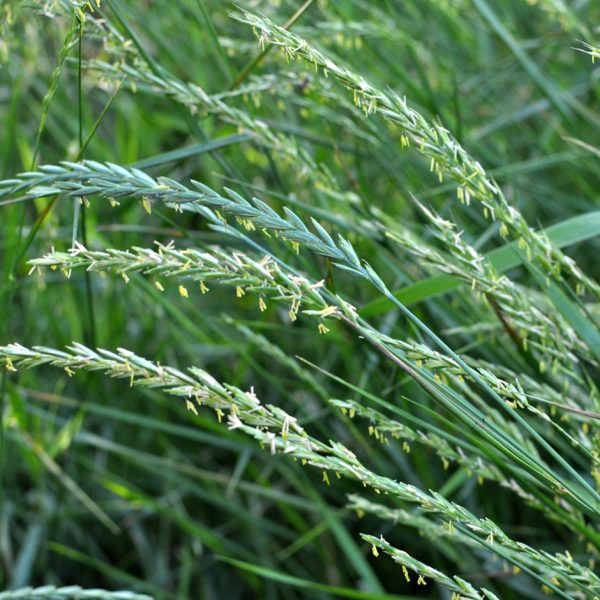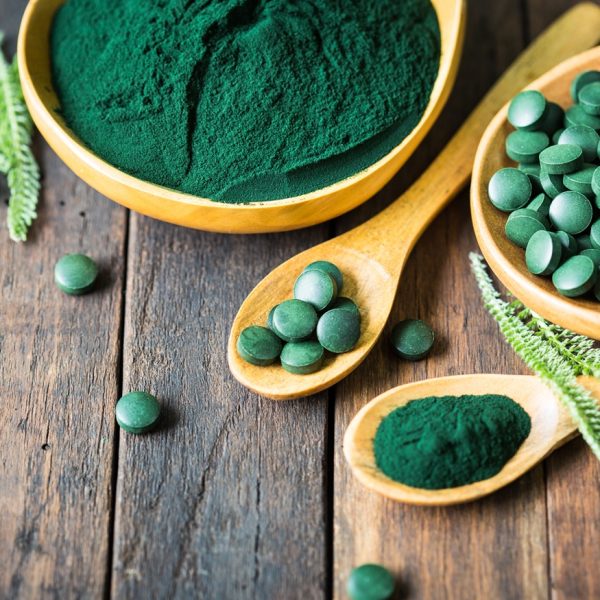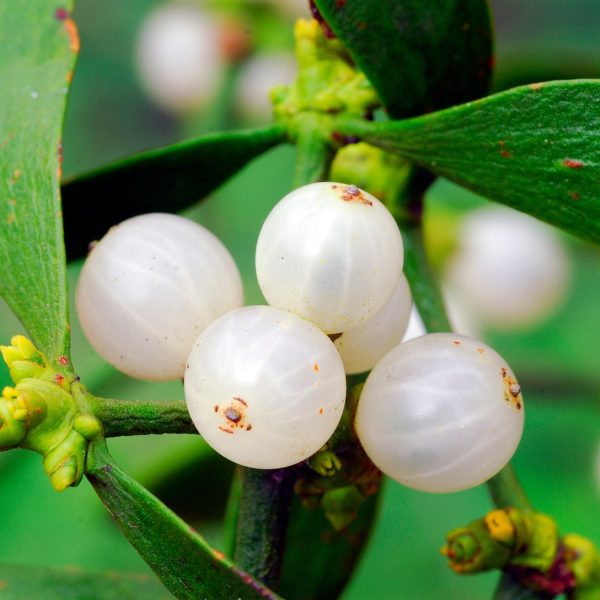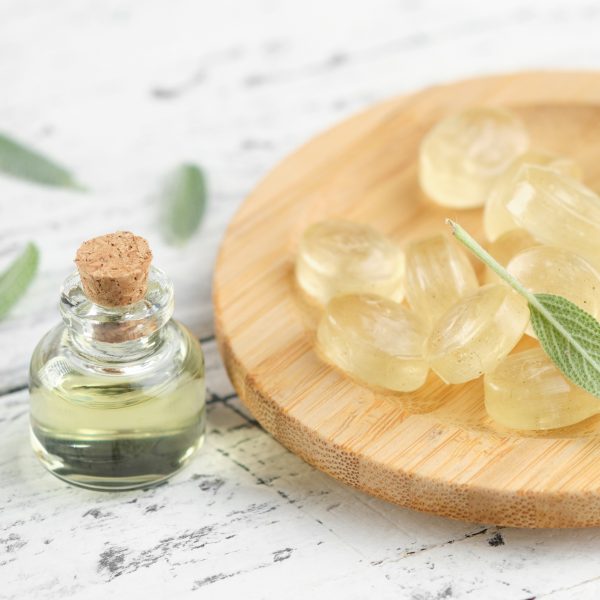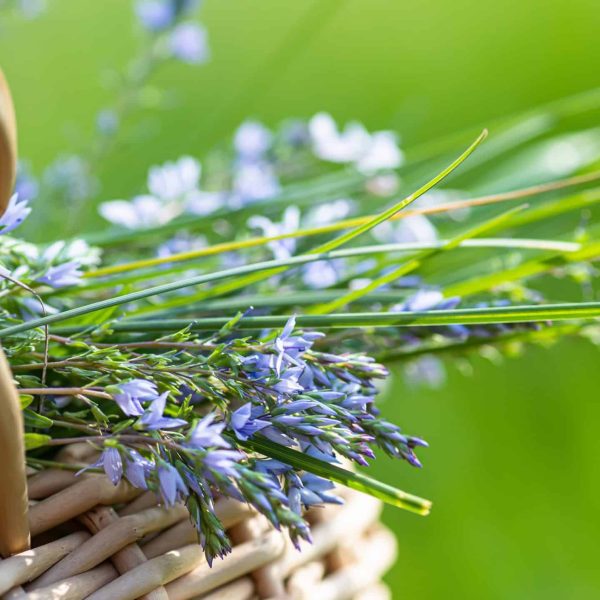What is the impact of agricultural practices on herb quality, soil health and the wellbeing of people and the planet? Jonas explores how to navigate herb sourcing responsibly.

More than ever before, we live in an era of globalisation and information availability. We have access to medicinal herbs all over the world, and more and more scientific data available to show their efficacy. In Europe the herbal medicine market has been predicted to keep growing in the next few years, due to an increased inclination towards “natural” products, an ageing population and a proliferation of chronic disease (1). But the global herbal market goes beyond the herbs that are required for herbal medicinal use. Food and drink, as well as cosmetics, perfume, incense, aromatherapy, pharmaceuticals all rely on herbs in their industries. One surprising sector, relying on large amounts of herbs is the tobacco industry, which requires large amounts of liquorice (Glycyrrhiza spp.) Most of the liquorice harvested goes into glycyrrhizin extraction, most of which goes into the tobacco industry, where it is added to tobacco, to enhance its texture and flavour.
Herbs may conjure up an image of being natural, and good and somehow being inherently sustainable. Perhaps being picked by country folk or grown and harvested by hand, and dried carefully in some drying shed. It certainly doesn’t bring up the same images as one might get, when thinking about growing corn, wheat or potatoes. And although it is true, that herbs are often picked from the wild in rural areas, handpicked by people living on the edge (or beyond) of the modern world, it is also true, that these people are often from marginalised groups, vulnerable to exploitation and that the land is exposed to pollution with pesticides and other manmade chemicals, that we would rather not like to find in our medicinal herbal products. Equitable and environmentally sustainable trade is currently not the norm within the world, it tends to be the exception. This is why certification systems such as Organic, Fair Trade, Fair 4 Life and FairWild have been created — to offer guidance to those who wish to treat the planet, and the people involved in the procurement of these plants fairer, and to provide a guarantee to those buying these products on the other side of the supply chain.
Ultimately, as people who endorse the relationship with herbs and who rely on herbs from all over the world, we are part of a worldwide web of relationships between people, plants and planet. Whether we buy our herbs from our local health food shop, or online from a wholesaler, it is likely that they were grown far away, in another country (or even another continent), collected and processed by people who we have never seen, and will never meet. Whether we open our eyes to it or not, through our choices we are part of this community and play our part in it. And even if this didn’t concern us, even if we were only concerned about the quality and efficacy of the herbs we consume or give to our clients, to be concerned about this means to also be concerned about ecological and social sustainability. Without ecological and social sustainability, the quality of our herbs suffers also. How so? How are these all intrinsically connected?
Ecological sustainability within medicinal herb farming
Defining general ecological good practice for the growing and harvest of herbs is very difficult. What is sustainable, depends on the herb’s specific characteristics, how fast it grows, how well it regenerates, the part of the plant used. But, also, how the environment is affected by its cultivation and/or harvest. Is the rainforest being cleared to cultivate this plant? Is the soil being ripped up with heavy machinery to harvest the roots? Are any pesticides used to clear the land for cultivation? Perhaps the most well-known difference between organic and non-organic cultivation of plants is the use of pesticides and artificial fertilizers — both of which are not allowed to be used in organic cultivation.
Pesticides
Pesticides tend to be a problem more so within the growing of food crops, which have often been genetically modified to withstand the effects of herbicides and have been bred for features such as heavy crops, fast growth and optimum storage conditions, and not for resilience within a natural environment. Herbs, on the other hand, tend to not be subject to this kind of selection. However, in recent times, use of pesticides, herbicides, insecticides and fungicides has become so widespread and prolific, that pollution into surrounding water and land has become an ever-increasing issue. This means the impact of these chemicals is detectable far beyond the boundaries of the fields on which they were applied. This has major implications for the environment. The intensification of agriculture and in particular the recurrent use of chemical fertilizers and pesticides is the primary driver for the loss of biodiversity of birds, insects, mammals and aquatic organisms in streams. With the current trends, it is estimated that we will lose 40% of the world’s insect species over the next few decades (2).

The contamination with pesticides through these indirect sources is called non-point contamination, a phenomenon, which is more and more detectable within culinary and medicinal herbs commonly harvested from non-organic as well as organic sources (3,4,5,6). Although organically cultivated crops show far less residues (4), and generally must be tested for pesticide residues, to maintain their organic certification. While some medicinal herbs tend to be sourced from cultivation, many herbs are exclusively wild harvested. However, wild harvest does not guarantee that the final product will be free from pesticides. Often, wild-collection sites are close to agricultural areas and pesticides find their ways into the local ecosystem. One study compared samples from cultivation and wild-collection and found that the wild-collection sources had higher levels of contaminants (3).
One study analysed 47 different ginseng products including both Asian ginseng (Panax ginseng) and American ginseng (P. quinquefolius) to determine the content of pesticides and toxic heavy metals (5). They found that 24 samples (80%) contained pesticides above the detection limit and 13 samples (43%) did not comply with the maximum residue limits (MRL) for various pesticides imposed for botanical extracts. The levels were up to 55 times their maximum residue limits — set up to limit exposure to harmful rates of pesticides (5). Within Europe, Poland is perhaps the country with the largest amount of herbal cultivation. Around 20,000 farms, on ca. 30,000 hectares, produce around 50,000 tonnes of herbs from crops and 10,000 tonnes of herbs from wild collection. Here too pesticide levels have been detected within samples taken from herbs, raising concern for our medicinal herbs (6).
While the presence of these chemicals might not indicate that pesticides were used in their production (as they are more often used in the production of food crops, surrounding the areas where the herbs grow) it is still concerning regarding the environmental impact this pollution has. But it should also concern herbalists, who wish to prescribe medicinal products, from a healthcare perspective. Insecticides, fungicides, herbicides may all affect our health in various ways. And while individual safety levels have been set for the environment, food and drink products, they do not consider the “cocktail” effect, that happens, through the combination of multiple pesticides. Various pesticide combinations can have additive effects, the various chemicals may interact with one another and lead to synergistic negative effects on human health (7).
Pesticides can affect our health through altering our gut microbiota composition and their metabolites and impact the intestinal mucosa and cell lining. All these changes can further negatively impact the health of those consuming these pesticides (8,9,10). Various health conditions are linked to increase exposure of pesticides, including Alzheimer’s, Parkinson’s disease, breast, bladder, colon, liver and brain cancer, asthma, diabetes, allergic reactions and leukaemia (11). Additionally, pesticides can cross the placental barrier (12), and prenatal exposure to pesticides has been linked to increase in birth defects as well as cognitive effects such as lowered IQ, perceptual reasoning and poorer memory (11).
While some companies may test for artificial pesticide residue on herbs on a voluntary basis, all organically certified herbs must be tested for any contamination, giving a greater reassurance of herbs with minimal pesticide levels (a maximum of 0.01mg/kg). Choosing organic herbs means a lower risk of contamination with artificial pesticides for the herbs. But it also means that the land on which the herbs grow on will be protected from direct exposure to artificial pesticides, protecting the wildlife in that area. This applies to wild-harvested, as well as cultivated sources. To protect the health of the ecosystem is to protect the health of those in relationship with the ecosystem, no matter how far away these may be.
A caveat: While artificial pesticides are banned with organic certified crops, some organic pesticides are allowed, to make things more complicated, there are various organic standards, some more or less rigorous. It is best to familiarise oneself with the different relevant standards. However, to do this here, would go beyond the scope of this article. Overall, it is evident that organic production relies on less pesticide use and organic products are less likely to contain concerning levels of pesticides. Both beneficial to environment and humans alike.
Biodiversity
While the avoidance of artificial pesticides is a major cornerstone of organic, it is not the only practice (or non-practice) that is relevant for ecological sustainability within farming. Fostering biodiversity, protecting sensitive habitats, protecting and nourishing healthier soils and working with natural systems are all key elements of organic farming.
Biodiversity is a key element for ecosystem stability. Diverse ecosystems are more resilient and can better withstand environmental stressors. Through its practices, organic farming tends to have a positive impact on biodiversity, compared to conventional farming (13). Diversity can additionally increase the resilience of producers and growers. By cultivating a variety of medicinal herbs and integrating them with other plants, organic farmers create habitats that support beneficial insects, birds, and other wildlife, thus fostering a balanced ecosystem. In turn, this nurtures a resilience to crop failures and market fluctuations, supporting the farmers themselves. Although the abdication from artificial pesticides and fertilizers can also imply an increase in risk of pests and requires a more hands on farming, which often means increased labour expenses, as weeding for example is often done by hand, or by plough, which brings its own problems to the soil health.
Soil health
Soil, its microbiome and organic matter, are the foundation for all plants and thus, in one way or another, most life on land. But more specifically, the state of the soil seems to impact the levels of minerals, vitamins and phytochemicals in the crops grown on it. Modern farming techniques tend to degrade soil health. Tillage — used in most modern farming — has been found to disturb the abundance and community composition of earthworms and decreases the diversity of soil fungi and bacteria and particularly disrupt root-like fungal hyphae, reducing deliveries of mineral elements to plants from fungal symbionts (14,15).
Alternatively, farms using combined no-till, cover crops (crops grown during the winter, to ‘cover’ the bare soil), and diverse rotations — a system known as conservation agriculture — produce crops with higher soil organic matter levels, soil health scores, and levels of certain vitamins, minerals, and phytochemicals (16). In the UK alone we are losing 2.2 million tonnes of useful topsoil a year due to erosion, which could at least in part be avoided by not leaving fields bare after harvest (17).
Fertilisers
Modern farming has also introduced the use of artificial fertilisers to increase the production of food crops. Since its inception, the organic movement has shunned the use of artificial fertilisers and instead relies on organic fertilisers such as compost, mulch and manure. And for good reason it seems. We now know that the use of these artificial fertilisers, while being able to produce bumper crops, seem to negatively impact the soil, leading to acidification, and soil crust, which results in decreasing organic matter load, increase in pests and decrease in useful organisms (18). Additionally, artificial fertilisers negatively impact the microbial community in the soil and weaken the connection between soil microbes and plants (19). High nitrogen fertilisers reduce the abundance and diversity of mycorrhizal fungi and increase prevalence of the less mutualistic fungi (14).
How does all of this affect the potency of our herbs?
Studies show that organically grown crops tend to be higher in plant compounds such as polyphenols, phenolic acids, flavonoids, anthocyanins, carotenoids (14,20,21). And these are often the constituents associated with the health benefits gained by taking herbs.
Through our interaction with the soil, we can impact its health and microbial community, which directly impacts the health of individual plants and the ecosystem they are part of. By abandoning the use of pesticides and fertilisers, we can directly impact the levels of constituents present within the food and medicine we take, and we can avoid contamination, which may actually negatively impact our health. This shows that the quality of our care for the environment directly impacts the quality of the herbal remedies we make and take. Or as James Green writes in The herbal medicine maker’s handbook “My herbal extracts can never be any better than the quality of the herbs I begin with” (22, p.77).
Organic is just a certification, and if we all grew our own herbs, or would source them locally, perhaps we wouldn’t need certifications. When we grow herbs ourselves, we can see the quality of our relationship with the herbs, through observing the land they grow in, nurturing the plants and taking care when harvesting, processing and consuming them. And this will probably remain the most sustainable and transparent way of engaging with herbs, and perhaps offer the best and freshest quality. But for many people, this may either not be possible or desirable. Herbs come from all over the world. And there is less and less land available to more people, to simply wild harvest, or grow everything. And thus, we lose the ability to be fully aware of every step of the supply chain. While the organic certification does not present a perfect solution for all the problems discussed in this article, it does offer a lot in terms of assurance and transparency, that the herbs sourced come from a protected environment and are cultivated in a more sustainable way, than conventional herbs.

Source: https://www.mdpi.com/2076-3417/10/10/3468#
References
- Europe Herbal Medicine Market Research Report – Segmented By Type, Source and Country (UK, France, Spain, Germany, Italy, Russia, Sweden, Denmark, Switzerland, Netherlands, Turkey, Czech Republic & Rest of Europe) – Industry Analysis on Size, Share, Trends, COVID-19 Impact & Growth Forecast (2024 to 2029) https://www.marketdataforecast.com/market-reports/europe-herbal-medicine-market
- Sánchez-Bayo F., & Wyckhuys K. A. G. Worldwide decline of the entomofauna: A review of its drivers. Biological Conservation, 232, 8–27. doi:10.1016/j.biocon.2019.01
- Harris E, Cao S, Littlefield B, Craycroft J, Scholten R, Kaptchuk T, Fu Y, Wang W, Liu Y, Chen H, Zhao Z, Clardy J, Woolf A, Eisenberg D. Heavy metal and pesticide content in commonly prescribed individual raw Chinese Herbal Medicines, Science of The Total Environment, Volume 409, Issue 20, 2011, Pages 4297-4305, https://doi.org/10.1016/j.scitotenv.2011.07.032.
- Gómez-Ramos MDM, Nannou C, Martínez Bueno MJ, Goday A, Murcia-Morales M, Ferrer C, Fernández-Alba AR. Pesticide residues evaluation of organic crops. A critical appraisal. Food Chem X. 2020 Feb 5;5:100079. doi: 10.1016/j.fochx.2020.100079. PMID: 32083251; PMCID: PMC7019120.
- Durgnat JM, Heuser J, Andrey D, Perrin C. Quality and safety assessment of ginseng extracts by determination of the contents of pesticides and metals. Food Addit Contam. 2005 Dec;22(12):1224-30. doi: 10.1080/02652030500199439.
- Kowalska, G. Pesticide Residues in Some Polish Herbs. Agriculture 2020, 10, 154. https://doi.org/10.3390/agriculture10050154
- Rizzati V, Briand O, Guillou H, Gamet-Payrastre L. Effects of pesticide mixtures in human and animal models: An update of the recent literature, Chemico-Biological Interactions, Volume 254, 2016, Pages 231-246, ISSN 0009-2797, https://doi.org/10.1016/j.cbi.2016.06.003.
- Yuan X, Pan Z, Jin C, Ni Y, Fu Z, Jin Y. Gut microbiota: An underestimated and unintended recipient for pesticide-induced toxicity. Chemosphere. 2019 Jul;227:425-434. doi: 10.1016/j.chemosphere.2019.04.088.
- Gillois K, Lévêque M, Théodorou V, Robert H, Mercier-Bonin M. Mucus: An Underestimated Gut Target for Environmental Pollutants and Food Additives. Microorganisms. 2018; 6(2):53. https://doi.org/10.3390/microorganisms6020053
- Campana AM, Laue HE, Shen Y, Shrubsole MJ, Baccarelli AA. Assessing the role of the gut microbiome at the interface between environmental chemical exposures and human health: Current knowledge and challenges. Environ Pollut. 2022 Dec 15;315:120380. doi: 10.1016/j.envpol.2022.120380.
- Ahmad F, Ahmad F. A, Alsayegh A. A, Zeyaullah Md, AlShahrani A. M, Muzammil K, Saati A. A, Wahab A, Elbendary E. Y, Kambal N, Abdelrahman M. H, Hussain S. Pesticides impacts on human health and the environment with their mechanisms of action and possible countermeasures, Heliyon, Volume 10, Issue 7, 2024, https://doi.org/10.1016/j.heliyon.2024.e29128.
- 12) Silver MK, Shao J, Chen M, Xia Y, Lozoff B, Meeker JD. Distribution and Predictors of Pesticides in the Umbilical Cord Blood of Chinese Newborns. Int J Environ Res Public Health. 2015 Dec 30;13(1):94. doi: 10.3390/ijerph13010094.
- Rahmann G. Biodiversity and Organic Farming: What do we know?
- Montgomery D , Biklé A. (2021) Soil Health and Nutrient Density: Beyond Organic vs. Conventional Farming. Frontiers in Sustainable Food Systems, Vol 5. https://doi.org/10.3389/fsufs.2021.699147
- Crittenden, S. J., Eswaramurthy, T., Goede, R. D., Brussaard, L., and Pulleman, M. (2014). Effect of tillage on earthworms over short- and medium-term in conventional and organic farming. Appl. Soil Ecol. 83, 140–148. doi: 10.1016/j.apsoil.2014.03.001
- Montgomery DR, Biklé A, Archuleta R, Brown P, Jordan J. Soil health and nutrient density: preliminary comparison of regenerative and conventional farming. 2022 Jan 27; doi: 10.7717/peerj.12848
- DEFRA. Safeguarding our Soils. A Strategy for England. 2009
- Pahalvi, H.N., Rafiya, L., Rashid, S., Nisar, B., Kamili, A.N. (2021). Chemical Fertilizers and Their Impact on Soil Health. In: Dar, G.H., Bhat, R.A., Mehmood, M.A., Hakeem, K.R. (eds) Microbiota and Biofertilizers, Vol 2. https://doi.org/10.1007/978-3-030-61010-4_1
- Huang R, McGrath S, Hirsch P, Clark I, Storkey J, Wu L, Zhou J, Liang Y. (2019). Plant–microbe networks in soil are weakened by century-long use of inorganic fertilisers. Microbial Biotechnology, https://doi.org/10.1111/1751-7915.13487
- Barański M, Średnicka-Tober D, Volakakis N, et al. (2014). Higher antioxidant and lower cadmium concentrations and lower incidence of pesticide residues in organically grown crops: a systematic literature review and meta-analyses. British Journal of Nutrition. doi:10.1017/S0007114514001366
- Hallmann E, Sabała P. (2020). Organic and Conventional Herbs Quality Reflected by Their Antioxidant Compounds Concentration. Applied Sciences; 10(10):3468. https://doi.org/10.3390/app10103468
- Green J. (2000) The herbal medicine-maker’s handbook A Home Manual.

